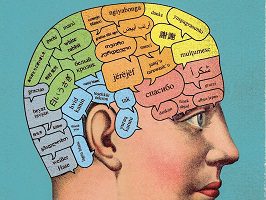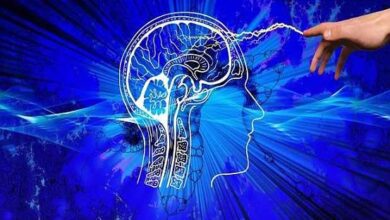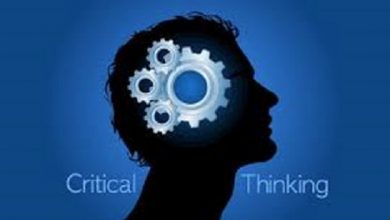Language acquisition definition
Language acquisition
Language acquisition definition has always been on the ambitious intellectual horizon of Universal Grammar theorists. You can almost say that they have traditionally been considered by them as the Gordian knot of the intricate mastery of language, the key piece that would allow formulating a general theory of language and, therefore, of the mind (Baker and McCarthy, 1981; Hornstein and Lightfoot, 1981). For this, the study of language acquisition would require relying on linguistic theory and applying rigorous empirical validation procedures
The different stages of language acquisition
There are several stages that the human being must go through in order to acquire language. Therefore, here we show you in broad strokes, the different moments that your baby will go through.
There are several stages that the human being must go through in order to acquire language. Therefore, here we show you in broad strokes, the different moments that your baby will go through.
Prelinguistic stage
From the birth to 12-15 months, the first stage of communication can be defined at the prelinguistic level. It establishes the child’s first communication resources, especially with his mother.
It is at this stage that crying should be considered as one of the tools that the baby uses as a means of communication. Its intonation, intensity and rhythm make it bearer of different messages.
From the second month of life the vocal game appears: the incessant repetition of sounds that apparently make no sense. This vocal game that begins with continuous emissions of guttural sounds, occurs in moments of physiological tranquility. At this stage the baby continuously repeats sounds that sometimes entertain him for up to three days. These sounds can be included in your vocal memory through interleaving or combination with existing ones or they can be lost thanks to their replacement. In this gradual process new and new sounds are generated.
At this age, the baby is able to respond to his mother’s incitement in a learning process called “imitation.”
Passage of the vocal game to language. In this stage that is where the recognized babble of children appears, those vocal games that are not part of the mother tongue are excluded since they have not been adequately reinforced. This is a period of phonic wealth that is not yet at the service of speech.
No matter the culture we live in, all the babies in the world babble in the same way. What happens is that as time passes, the sounds of the mother tongue are reinforced by adults through approvals, associations and repetitions.
Linguistic stage
The richest stage in language development begins the first year of life and ends at five years of age. During this period different classifications can be made that will denote the language acquisition process:
Word – Phrase
After the year until almost two years, the situation, mimicry and intonation express a communicative content.
The simple phrase
After two years of age, the words are in progressive complexity and the messages have a high communicative content. The children’s monologue begins. The five to seven year old child has already integrated the consecutive, phonological and grammatical instruments similar to the adult language.
Amplitude of infant vocabulary
- 1 to 6 months: 100 words
- 2 years: 300 – 400 words
- 3 years: 1200 words
- 4 years: 1800 words
- 5 years: 2400 words
- 6 years: 3200 words
MILESTONES IN THE DEVELOPMENT OF COMMUNICATION, LANGUAGE AND HEARING
PRELINGUISTIC STAGE (FROM 0 TO 12 MONTHS)
From 0 to 5 months:
– It emits noises with its throat.
– Create sounds related to pleasure and pain (laughs, cries or complaints).
– Twitter and screams appear.
– Makes small noises when spoken to.
– Sensitivity to noise.
– He calms down upon hearing his parents’ voice.
– Visual attention.
From 6 to 12 months:
– Understand the word “no”.
– Know and respond to his name.
– Have fun with the toys that make sounds and enjoy the songs.
– Emits babbling.
– Displays protoconversations:
. Proto Imperatives: the child wants something and is directed with gestures or with his eyes towards his goal.
. Protodeclaratives: the child conveys a feeling.
– Laleo arises that are vowel and consonant sounds (“mamama”, “papapa”, “bababa”).
– Try to communicate with gestures.
– Cry when separated from his parents.
– Try repeating some sounds.
LANGUAGE STAGE (FROM 12 MONTHS)
WORD-PHRASE PERIOD (FROM 12 MONTHS TO 2 YEARS OLD)
From 12 to 18 months:
– Pronounce the first words, with meaning (“mom”, “dad” or “water”).
– Answer simple questions using nonverbal language (Where is it ?, before objects or images).
– More comprehensive than expressive capacity.
– He cries at the separation of his parents, his crying lasts a long time.
– The pronunciation may be unclear. (aba, cheche or tete).
– Use one or two words to indicate a person or an object.
– Holophrases appear.
– Your vocabulary will be 4 to 6 words.
– Try to imitate simple words.
From 18 months to 24 months:
– Pronounce without errors all the vowels and the simplest phonemes.
– Start using other language sounds.
– Distinguish the feminine and the masculine.
– Use the third person to refer to themselves.
– Is able to order food by name.
– Issues onomatopoeia (animals, transport, etc.).
– At the end of the stage the vocabulary will be about 50 words, you can still make mistakes in the production.
FIRST PHRASES PERIOD (FROM 2 TO 6 YEARS OLD)
From 2 to 3 years:
– Telegraphic language appears (my car or more milk).
– You can group objects by families.
– Know concepts like “inside”, “big”, “beautiful”, etc.
– Knows pronouns like “I”, “you” and “she”.
– The symbolic game appears.
– Does inflection in his voice to ask questions my ball ?.
– The Why appears? And for what?.
– Start using the plural.
– The explosion of language occurs. The vocabulary is extended from 250 to 900 words.
– Mix reality and fiction.
– Makes 3 word sentences.
– Your speech becomes more accurate.
From 3 to 4 years:
– Exits egocentrism and enters the stage of social language.
– Maintains interaction with other people.
– Use speech sounds correctly.
– Is able to describe common objects.
– Have fun with language and enjoy the absurd.
– Express ideas and feelings.
– Use verbs in gerund.
– Repeat long sentences.
– Master the grammar.
– Start answering simple questions that refer to something that is not present.
It is very important to keep in mind that, not all children develop speech and language skills in the same way, however, all children follow these stages to master language skills, in addition, language development is directly related with the following factors:
– Biological: They are the child’s own physiological characteristics.
– Familiar, emotional, emotional, sociocultural and stimulation by their environment, and this is that, the development of language is linked to the continuous incorporation of sounds produced by the people with whom it interacts, the internalization of these sounds and the association of signs and symbols. Keep in mind that, children who feel emotionally safe and who are linguistically well stimulated, get to talk sooner.


